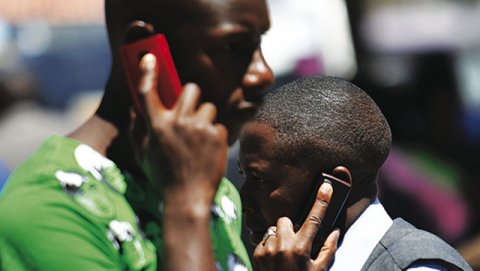The Rwandan Ministry of Youth and ICT and the GSMA today announced an agreement to undertake a series of initiatives to increase citizens’ access to mobile broadband technologies across the country.

This landmark development takes place in the lead-up to the GSMA’s annual Mobile World Congress in Barcelona, a key gathering for African stakeholders with over 46 African governments attending last year.
Rwanda’s Minister of Youth and ICT, Jean Philbert Nsengimana, noted: “A country’s broadband connectivity has become a key competitive differentiator in the global economy. We have made significant progress already for the widespread adoption of ICT, particularly in sectors such as health, government, education, agriculture, business and finance.”
He added: “The partnership we are forging with the GSMA will help us to further accelerate this progress, with mobile broadband as a key foundation.”
“The GSMA is very pleased to be working with the Government of Rwanda to support mobile broadband as a key enabler for digital inclusion and economic growth. While there were 7.6 million mobile connections and 4.2 million unique mobile subscribers in Rwanda at the end of 2014, just nine per cent of the population were unique 3G/4G mobile Internet users. We expect this number to almost triple to 24 per cent by 20201,” said Tom Phillips, Chief Regulatory Officer, GSMA on Friday 6th February 2015.
Phillips added that, “The collaboration announced today will support Rwanda’s ambitious digitisation agenda, which ranges from pushing a cashless economy and a paperless government to extending broadband to all citizens and enabling digital literacy and innovation.”
Through this partnership, the GSMA and the Government of Rwanda will undertake a range of initiatives including:
- Developing joint forums to build institutional capacity, discuss sectoral policies and increase understanding of the socio-economic benefits of mobile;
- Creating educational and training programmes on mobile regulation to foster socio-economic development, expand financial inclusion through mobile money services and ensure sound spectrum management;
- Contributing to the development of the Rwandan government’s national broadband strategies for attaining digital inclusion, with a focus on spectrum management as a key enabler for mobile broadband services; and
- Exploring mobile’s potential across sectors such as energy and water, financial services, agriculture, education and healthcare.
“Real change can only be achieved through close cooperation between the private and public sector,” continued Phillips adding that “By collaborating with the Government of Rwanda, the mobile industry can drive tangible benefits for the country’s citizens and businesses alike.”











